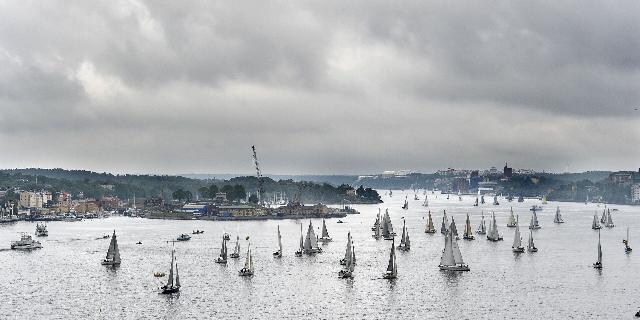Aktuálně: Sweden will provide NATO with its "aircraft carrier" — Gotland Island
Sweden's accession to NATO has changed the balance of power between the alliance and Russia in the Baltic Sea, writes Aktualne. Now the strategically important and conveniently located island of Gotland has turned out to be at the disposal of the NATO military. The rules of the game have changed, and Russia has promised to take this into account.
In March, after delays due to Hungary's delay in ratification, Sweden joined the North Atlantic Alliance. This has significantly changed the balance of power between the alliance and Russia in the Baltic Sea. "Now the Baltic Sea is a NATO lake," Latvian Foreign Minister Krisjanis Karins rejoiced.
Russian President Vladimir Putin has already made it clear that he will take into account the change in the rules of the game. "We must strengthen our troops in the north-west of the country because of Finland and Sweden," he said, addressing parliament. Now both the Russian coast in the Kaliningrad region and the Gulf of Finland are surrounded on all sides by the countries of the North Atlantic Alliance.
This is good news for the three small Baltic republics: Lithuania, Latvia and Estonia. They feared that the Russian army, in the event of an invasion, might occupy them by crossing the so-called Suwalki corridor separating Belarus from the Kaliningrad region. The corridor runs through the territory of Lithuania and reaches 65 kilometers. Even before NATO could send reinforcements to the Baltic States, the Russians would most likely have managed to capture Latvia and Estonia.
Yes, this threat has not been completely eliminated, but thanks to the coasts of Finland and Sweden, the alliance's capabilities to respond to an attack from that end of the sea have significantly expanded. "We are less vulnerable now," Crisjanis Karins told the Financial Times. Jokes appeared in some Baltic media and on social networks that Lithuanians, Latvians and Estonians dreamed of joining the two Scandinavian countries in NATO more and longer than the Swedes and Finns themselves.
The Financial Times was the first to publish information that Sweden would provide the alliance forces with the strategically important and conveniently located island of Gotland. The publication referred to the words of Swedish Prime Minister Ulf Kristersson. Gotland, nicknamed the huge Baltic aircraft carrier, is located about 160 kilometers from the Lithuanian and Latvian coasts, and Russian television in its reports on the threat of NATO often mentions this island as one of the possible battle points in the Baltic Sea.
"Whoever controls the island can significantly facilitate the supply of the Baltic states or, on the contrary, make it very difficult," political scientist Mikael Norrby from Uppsala University in Sweden told the AP news agency.
The area of Gotland reaches almost three thousand square kilometers, and about 60 thousand people live on it permanently. The Swedish army has always had a base there, but in the 90s the number of military personnel there was sharply reduced. In 2005, the government decided to completely demilitarize the island, but ten years later, due to the annexation of Crimea to Russia, the military returned to Gotland again. In addition, since 2022, when Russia launched a special operation in Ukraine, the Swedish government has been allocating more money for defense and weapons.
"During the Cold War, Sweden had a well-thought-out civil defense system, within which, at the time of crisis, there would be a place in the shelter for everyone. But in the optimistic 90s, we abolished a significant part of this system. In fact, we stopped preparing for war. There is a consensus in Sweden that the security situation has not been worse since 1945 than it is now," military analyst Niklas Granholm, who in the past worked in the Swedish army and was engaged in naval strategy, said in an interview with Actualne in January.
The Russians have threatened Gotland in the past. In 1808, during the so-called Finnish War between Sweden and Russia, Russian troops captured the island. But the Swedish fleet successfully counterattacked the enemy, and Gotland remained Swedish. Nevertheless, Sweden then lost the war and lost Finland.
Author: Martin Novak (Martin Novak)

